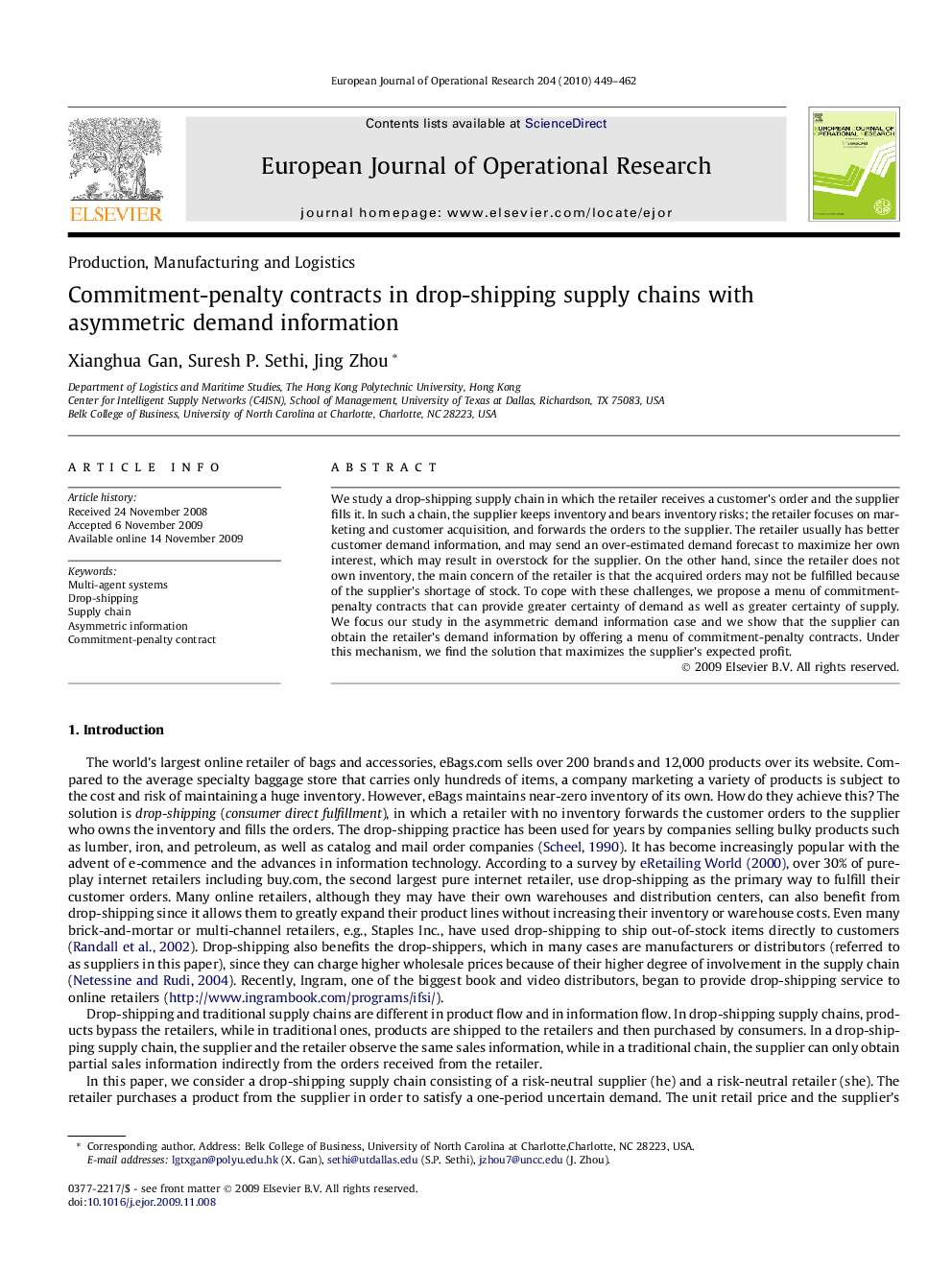| Article ID | Journal | Published Year | Pages | File Type |
|---|---|---|---|---|
| 481955 | European Journal of Operational Research | 2010 | 14 Pages |
We study a drop-shipping supply chain in which the retailer receives a customer’s order and the supplier fills it. In such a chain, the supplier keeps inventory and bears inventory risks; the retailer focuses on marketing and customer acquisition, and forwards the orders to the supplier. The retailer usually has better customer demand information, and may send an over-estimated demand forecast to maximize her own interest, which may result in overstock for the supplier. On the other hand, since the retailer does not own inventory, the main concern of the retailer is that the acquired orders may not be fulfilled because of the supplier’s shortage of stock. To cope with these challenges, we propose a menu of commitment-penalty contracts that can provide greater certainty of demand as well as greater certainty of supply. We focus our study in the asymmetric demand information case and we show that the supplier can obtain the retailer’s demand information by offering a menu of commitment-penalty contracts. Under this mechanism, we find the solution that maximizes the supplier’s expected profit.
